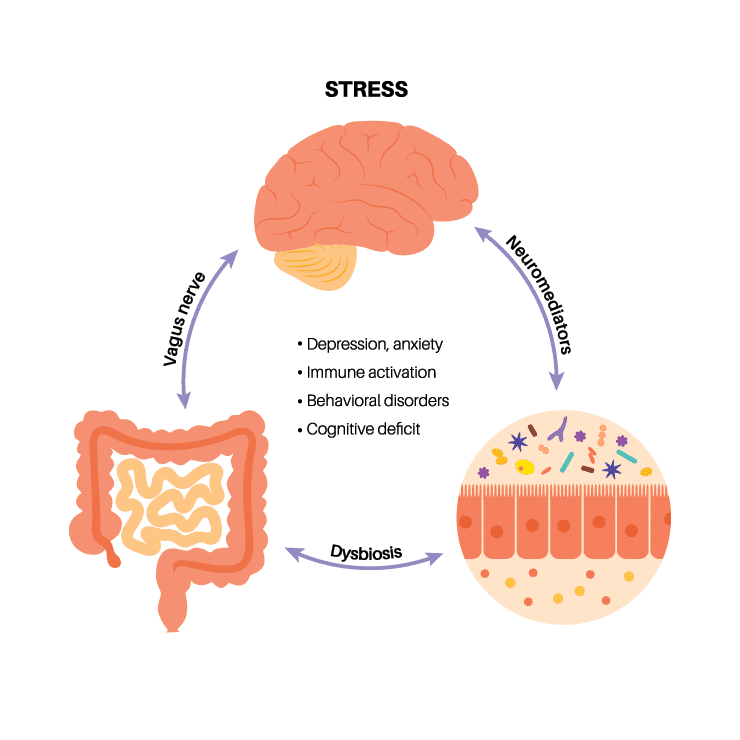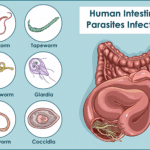The Gut-Brain Axis – Leaky Gut and Leaky Brain

We all know that worry, nervousness, anxiety and chronic stress can take a toll on our gut. The strong connection between your gut and brain allow near instantaneous bi-directional communication. Stressors can cause disturbances in the brain that can affect and be felt by your gut.
Leaky gut means that the cells are no longer maintaining a fortified barrier. The resulting intestinal permeability allows toxins, debris and undigested food particles to cross into the blood stream, triggering intestinal and systemic inflammation.
If leaky gut, or intestinal permeability, is present and the immune system starts to react, this process triggers inflammation and direct signaling to the brain. The brain will respond by signaling more immune and inflammation involvement; literally, calling in the army (immune system) to address the situation. Unfortunately, this can result in disastrous consequences. The gut will tell the brain that it’s on fire (inflammation) and instead of sending firemen to put the fire out, the brain will send signals that further ramp up inflammation. The cycle of communication will continue, which drives more and more symptoms.
Your gastrointestinal system has its own nervous system – the enteric nervous system. It’s through this nervous system, and specifically the vagus nerve, that the gut and brain ‘talk’ to each other. They communicate by sending immune system mediators and hormones back and forth. The microbes living in your GI tract also play a role in this communication. It’s been shown that these microbes communicate through electrical signals, similar to the neurons in your brain.(1)
The enteric nervous system regulates leaky gut.

In Enteric Nervous System: The Bridge Between the Gut Microbiota and Neurological Disorders, they write, “The GI tract is densely innervated by a network of 200–600 million neurons that comprise the enteric nervous system (ENS). This system cooperates with intestinal microbes, the intestinal immune system, and endocrine systems; it forms a complex network that is required to maintain a stable intestinal microenvironment.”
If left unchecked, leaky gut and leaky brain can trigger an autoimmune condition AND it can trigger a brain condition (like Parkinson’s).
The only way to get in front of this cycle is to pull the triggers that caused leaky gut and to take treatment to heal both leaky gut and leaky brain.
Leaky Gut Triggers Include:
- Alcohol
- Food intolerances/ allergies
- Gluten
- Once leaky gut is present, usually casein (protein in milk) is triggering
- Toxins
- Food additives: gums, food dye, artificial sweeteners, flavor enhancers
- Pesticides
- Nutritional deficiencies
- Parasitic and bacterial pathogens
- Dysbiosis (imbalance in the type or number of microorganisms in your GI tract)
- Medications (birth control, NSAIDS and aspirin)
- Food processing (2)
- Stress, stress and more stress
- Sleep issues
- Lack of social support
- Lack of exercise and movement
- Inflammatory fats
But, the first step is to test for leaky gut.
Order Your Leaky Gut Test Here
- Prindle A, Liu J, Asally M, et al. Ion channels enable electrical communication in bacterial communities. Nature. 2015;527(7576):59-63.
- Rapin JR, Wiernsperger N. Possible links between intestinal permeability and food processing: A potential therapeutic niche for glutamine. Clinics (São Paulo, Brazil). 2010;65(6):635-43
Enjoying this content? Sign up for updates... It's FREE!

















